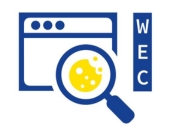
Le Contrôleur européen de la protection des données a mis au point des outils logiciels libres pour l’automatisation des inspections des sites web en matière de protection de la vie privée et des données à caractère personnel. Ces outils du CEPD permettent, après une brève introduction, de recueillir des éléments de preuve sur les opérations de traitement des données à caractère personnel des sites web à l'aide d'une méthode reproductible, fiable et rapide. Aucun service cloud tiers n'est impliqué pour recueillir des preuves. Les outils sont auto-cohérents et peuvent être utilisés dans les intranets sans accès à Internet.
Le CEPD publie ses outils dans le cadre de la licence publique de l’Union européenne (EUPL-1.2). La licence de logiciel ouvert permet aux experts d'adapter les outils à leurs propres besoins. Le CEPD accueille favorablement tout retour d'information et toute suggestion d'amélioration à envoyer à l'adresse suivante: tech-privacy@edps.europa.eu.
Website Evidence Collector
L'outil recueille des preuves de traitement de données personnelles, telles que des cookies, ou des demandes à des tiers. Les paramètres de collecte sont configurés avant l'inspection, puis la collecte est effectuée automatiquement. Les éléments de preuve recueillis, structurés dans un format lisible par l’homme et la machine (YAMLhttps://yaml.org/ et HTML), permettent aux responsables du traitement des sites web, aux délégués à la protection des données et aux utilisateurs finaux de mieux comprendre quelles informations sont transférées et stockées lors d’une visite d’un site web, c’est-à-dire le chargement consécutif d’un certain nombre de pages web sans donner de consentement ni se connecter.
L'outil démarre Chromium, c'est-à-dire une version open source dépouillée du navigateur Chrome, avec un nouveau profil utilisateur et charge toutes les pages web incluses dans la visite les unes après les autres sans autre interaction de l'utilisateur. Au cours de la visite, l'outil collecte entre autres:
- captures d’écran de pages web
- liste avec des liens HTTP de la page web d'entrée, classés par:
- lien interne (même site web)
- lien externe
- lien vers les réseaux sociaux et les services de collaboration
- liste des pages web visitées
- informations stockées dans le stockage local HTML5 (y compris la page web responsable et le composant causant le traitement)
- tous les cookies dans le profil du navigateur (y compris la page web responsable et le composant à l'origine du traitement)
- le trafic HTTP entre le navigateur et Internet en tant que fichier HAR, en particulier
- liste des demandes identifiées par la liste de filtres EasyPrivacy pour provoquer un suivi du comportement (y compris la page web responsable)
- liste des hôtes tiers et premiers hôtes demandés
- tous les messages échangés via Web Sockets (méthode de transmission alternative aux requêtes HTTP).
Compatibilité et installation
Le Website Evidence Collector doit être compatible avec Windows, MacOS, Linux et toutes les plates-formes prenant en charge NodeJS et Chromium. Toutefois, le CEPD n'a géré le Website Evidence Collector que sous Linux et MacOS. Pour une installation sur MacOS et Linux sans privilèges d’administrateur, veuillez suivre nos conseils dans la FAQ sur code.europa.eu.
Pour utiliser l'outil, vous pouvez soit l'installer directement à l'aide de Node.js et du gestionnaire de paquets Node.js (NPM), soit utiliser l'image conteneur fournie avec des outils tels que docker ou podman. https://code.europa.eu/EDPS/website-evidence-collector/
Veuillez lire attentivement les conditions d’octroi des licences EUPL. Comme indiqué dans sa section 7, le CEPD fournit cet outil «tel quel» et sans garantie d’aucune sorte, y compris l’adéquation à un usage particulier, l’absence de défauts ou d’erreurs ou l’exactitude.
Rapports de bogues
Les problèmes peuvent être signalés sur code.europa.eu/EDPS/website-evidence-collector/issues.
WEC en ligne
WEC Online s'appuie sur le Website Evidence Collector (WEC) en tant qu'application web multi-utilisateurs qui fournit une interface conviviale et conçue pour un déploiement centralisé dans les organisations et rendu accessible à ses membres. Il conserve toutes les caractéristiques du WEC d'origine tout en les rendant accessibles aux utilisateurs non techniques.
Le code source du WEC Online ainsi que des instructions détaillées d’installation et de configuration sont disponibles sur le site code.europa.eu.
Veuillez lire attentivement les conditions d’octroi des licences EUPL. Comme indiqué dans sa section 7, le CEPD fournit cet outil «tel quel» et sans garantie d’aucune sorte, y compris l’adéquation à un usage particulier, l’absence de défauts ou d’erreurs ou l’exactitude.
Rapports de bogues
Les problèmes peuvent être signalés sur code.europa.eu/EDPS/wec-online/issues.